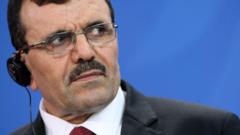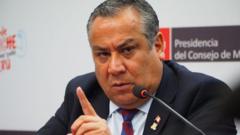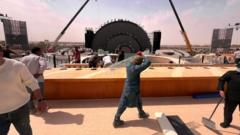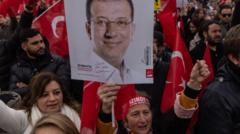A Tunisian court has sentenced Ali Laarayedh, the former Prime Minister and vocal critic of President Kais Saied, to 34 years for terrorism-related offenses, escalating fears over the state of democracy in Tunisia. Arrested three years ago, the 69-year-old leader of the Ennahda party claims the charges, including the establishment of a terrorist cell and facilitating the travel of recruits to conflict zones, are politically motivated. Rights groups have condemned these moves as part of a broader crackdown on dissent, with over 40 critics jailed recently. Critics argue that Saied's administration is undermining democratic progress achieved since the Arab Spring.
Tunisia Former Prime Minister Sentenced to 34 Years on Terrorism Charges

Tunisia Former Prime Minister Sentenced to 34 Years on Terrorism Charges
Former Tunisian Prime Minister Ali Laarayedh faces a lengthy prison sentence as the political climate in the country grows increasingly repressive.
In recent developments, a court in Tunisia has sentenced the former Prime Minister Ali Laarayedh to 34 years in prison, following accusations tied to terrorism. Laarayedh has been a vital figure in Tunisian politics, leading the prominent Ennahda party known for its Islamist views, and has been a persistent critic of President Kais Saied. Along with several others, he faced charges of forming a terrorist group and allegedly assisting youths to join extremist fights in Iraq and Syria. In a letter addressing the prosecutor, Laarayedh proclaimed his innocence, asserting he has become a target of political machinations. His sentencing comes amidst a crackdown on dissenting voices, which has seen at least 40 figures—including diplomats and journalists—imprisoned, raising concerns about the authoritarian shift under President Saied’s leadership, who has altered the constitution to consolidate power since taking office six years ago. As Tunisia struggles to maintain the democratic advancements born from the Arab Spring, critics lament the erosion of these gains and decry Saied’s leadership as dictatorial.



















